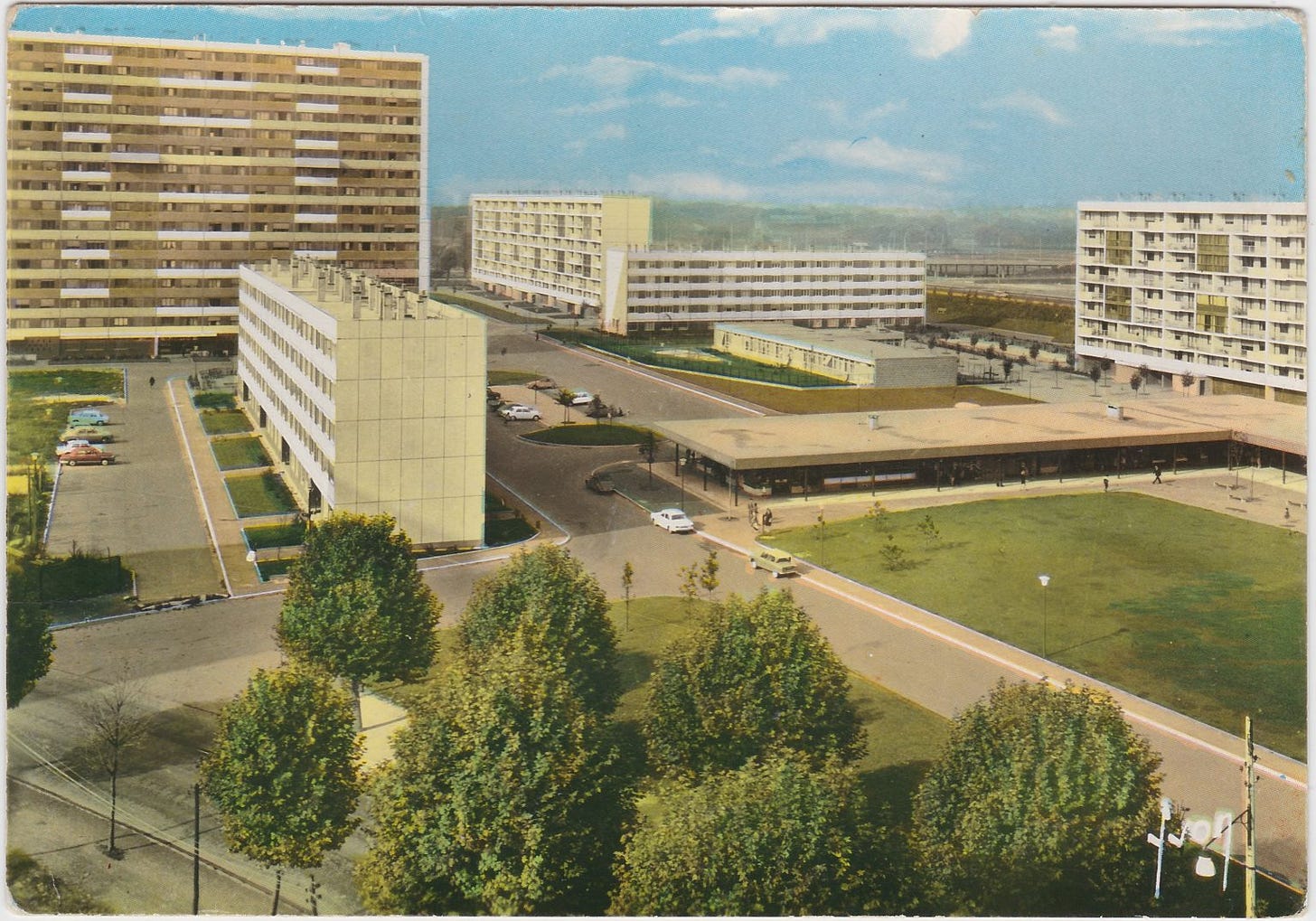Amid Suburban Riots in France, Some Brief Thoughts on Their Potential Roots
...and on the failure of utopian urban planning in greater Paris

Dear Subscribers,
Particularly since I don’t live in Paris these days, I’ve been hesitant to weigh in on the head-spinning news that’s come out of France over the past couple of weeks, and that began with the death of Nahel Merzouk, a 17 year-old teen, after he was shot by police during a traffic stop in the west Paris suburb of Nanterre. From video footage that was taken on the scene, it became clear that Merzouk was shot after he attempted to drive away, apparently contradicting initial reports from French police that the officer who shot the gun was acting in self-defense.
Following his death, riots and demonstrations have broken out across France, including in many Parisian suburbs that have long been seen as simmering pressure cookers of frustration, poverty, systemic discrimination and poor social mobility.
According to Angelique Chrisafis of The Guardian, clashes and riots across the country have been intense and violent:
“Teenagers as young as 13 clashed with police across the country as hundreds of public buildings were set alight, more than 5,000 cars were burned, 3,400 people arrested, scores of schools were damaged, 150 post offices attacked, more than 11,000 fires were started and 2,000 shops were looted, with an estimated €1bn damage to businesses. More than 800 police officers were injured and some of the poorest estates in the country woke up to find key buildings – from public libraries to community centres – reduced to ashes.”
What I won’t do in this piece is go into detail on the latest tragic case itself, nor establish a timeline of other recent, “routine” traffic stops by police that have ended in fatal shootings— mostly of young French people of African or North African origins.
Others, including Chrisafis and Chris O’ Brien at French Crossroads, have done an admirable and precise job of analyzing the latest events in the context of the recent past, harnessing the power of statistics to show that there are verifiable patterns emerging with regard to police violence and discrimination in France. They also accurately describe the intense political polarization between left and right-wing factions in France that make it difficult to parse the events in a nuanced way.
Things have become so polarized between “pro-police, pro-order” and “anti-police, pro-revolt” positions, in France and elsewhere, that I find myself reflexively adding a caveat here: attempting to explain the roots of violent protest or riots does not excuse the violence; but it opens an opportunity to better understand the conditions of desperation and oppression that fuel violent responses. And to say that something (in this case, discriminatory and violent policing in France) appears systemic is not to suggest that every person involved in the system behaves in the same way; I don’t harbor a belief that every French police officer, nor even a majority, are violent or racist— merely that they are operating within a system that is much more likely to interact with people of color in biased or discriminatory ways.
All I can do is hope that, especially on a platform like Substack which ostensibly seeks to get beyond the polarizing noise and yawn-worthy, dogmatic analysis that so plagues Twitter, these distinctions will be appreciated— or at least prompt further reflection.
Keep reading with a 7-day free trial
Subscribe to Paris Unlocked Newsletter to keep reading this post and get 7 days of free access to the full post archives.



